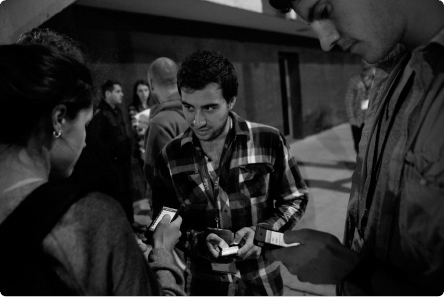Jealousy
A second problem for romantic relationships is jealousy—a protective reaction to a perceived threat to a valued relationship (Hansen, 1985). Most scholars agree that jealousy isn’t a single emotion but rather a combination of negative emotions—primarily anger, fear, and sadness (Guerrero & Andersen, 1998).
The most effective way to deal with jealousy is self-reliance: allowing yourself to feel jealous but not letting whatever sparked your jealousy to interrupt you.
Jealousy especially plagues users of social media. Such sites open the possibility for people other than your romantic partner to post provocative photos, write enticing posts on your wall, and send alluring messages—all of which can trigger your partner’s jealousy. Imagine how you’d feel if you saw such communication on your partner’s page. Studies of Facebook have found that jealousy is one of the most frequent problems reported by users (Morrison, Lee, Wiedmaier, & Dibble, 2008). Jealousy can intensify even further if site users engage in what communication scholar Kelly Morrison calls wedging. Through wedging, a person deliberately uses messages, photos, and posts to try and “wedge” him- or herself between partners in a romantic couple because he or she is interested in one of the partners (Morrison et al., 2008).

Josh Haner/The New York Times/Redux Pictures
Jealousy can easily form if you see flirty wall posts or suggestive photos on your lover’s social networking pages. If you feel threatened, it’s important to communicate in a cooperative and constructive manner when discussing your feelings with your partner. What experiences have you had with jealousy of this kind?
The most effective way to deal with jealousy is self-reliance: allowing yourself to feel jealous but not letting whatever sparked your jealousy to interrupt you. You should continue your current activities and give yourself time to cool off (Salovey & Rodin, 1988). Avoid communicating with your partner until you’re able to do so in a cooperative and constructive fashion. When you are ready to talk, don’t be afraid to candidly acknowledge your own jealousy, and discuss your perception of threat with your partner: “I saw that post from your old girlfriend, and I’m worried that she wants to get back together with you. Am I reading too much into this, or should I really feel threatened?”
Skills Practice
Dealing with Jealousy
Communicating more competently when jealousy strikes
- Identify a situation in which your jealousy is sparked.
- Continue your current activities, not letting the jealousy-evoking event distract you from completing what you were doing.
- Avoid immediate communication with your partner.
- While you’re finishing what you were doing, practice the Jefferson Strategy, counting to 10 or 100 until you cool off.
- Initiate communication with your partner, using your cooperative language skills and explaining why the event caused you to feel jealous. Solicit your partner’s perspective.
Question
Skills Practice